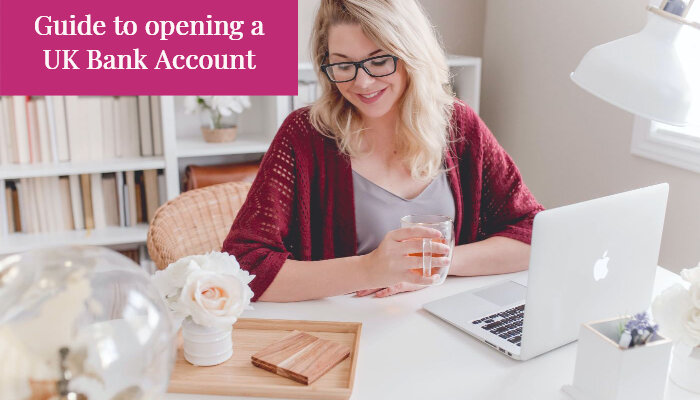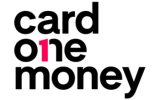How To Open A Bank Account In The UK
What you need to know to open a UK bank account
Your complete guide to opening a standard UK bank account and everything you should consider to ensure it’s the right one for you
With so many different types of bank account available in the UK, it can be baffling to know where to start and what might be right for you.
Actually opening a bank account is often the easy part, but it pays to give some thought to what you will need from your account, what to look for in terms of benefits and features, and what the application process usually involves.
Your guide to opening a UK bank account:
- What is a standard current account and why do I need one?
- How do I choose the right account for me?
- What do I need to open an account?
- Can I open a bank account if I can’t prove my address or have a poor credit history?
- Can I open a UK bank account if I am from abroad?
- Online Vs traditional account?
Our Top UK Bank Account Picks In 2023
Standard Current Accounts
There are no tables for this criteria
There are no tables for this criteria
There are no tables for this criteria
What is a standard current account and why do I need one?
What is a standard current account and why do I need one?
Having a standard current account is essential for everyday life, such as receiving payments, wages or benefits, paying bills or rent, shopping online, and for setting up a mobile phone contract or home internet.
You can use this type of bank account to set up direct debits and standing orders, to keep track of your spending and to help you budget – lots of banks offer handy features to help you do this via their online banking or app facilities.
Most banks offer a range of current accounts that have different features, but a standard current account is usually free with no extra fees involved.
When you open a current account, you are given an 8-digit account number, a 6-digit sort code and a debit card which you can use to access your money. You will also receive a cheque book and most banks offer an overdraft facility (subject to status).
How Do I choose The Right Current Account For me?
Selecting and opening the right UK bank account for you will depend on your needs. Some of the most important things to take into consideration are:
What’s the reputation of the bank? – You may want to find out how the bank you’re considering performs in terms of customer service. You can find out latest information here
How much interest will I get? – If you’re hoping to have a healthy bank balance, you’ll want a bank that pays a good rate of interest.
Is an overdraft facility included? How much does it cost? – If you’re going to need a little help every now and then, you’ll want to check out what the bank offers in terms of an overdraft facility and whether it’s free or incurs a charge.
Is there a local branch near me? – If this is important to you, you’ll want to check out which banks have a branch near you and what the branch opening hours are.
How good is the bank’s mobile banking app? – As well as being able to stay in touch with your account online what other features are on offer?
What other services are provided? – A current account may be all you want right now, but it’s worth considering other products and services you may need in the future, such as a business account, savings account or loan provisions. It’s always easier if you can keep your financial affairs in one place, so bare this in mind.
What are the different types of current account on offer?
Here are some of the different types of current account that banks and building societies typically offer:
- Standard Current Account – this is a normal current account which usually incurs no extra charges. You’ll receive a debit card, a cheque book and if you need an overdraft facility, this is usually offered at a charge (an agreed daily rate for each day you remain overdrawn (subject to status).
- Specialised Current Account – these are current accounts which usually incur an extra monthly fee because they offer perk benefits and features such as an arranged overdraft facility (by agreement), travel, mobile or breakdown cover and commission-free cash withdrawals or card payments abroad.
- Basic Current Account – an account with some limited features, directed at customers with poor or no credit history. You’ll still get a debit card and be able to pay bills, but you won’t get a cheque book or an overdraft facility. Basic accounts are also a good option for anyone who cannot provide the normal address verification requested by most banks to open an account, for example, homeless people, people living in refuge, or anyone in prison or on probation.
- Student Current Account – these accounts are based on the standard account but come with specially designed features to help university students, such as interest-free overdrafts and freebies. You will need to prove your student status when opening this type of account.
What do I need to open a current account?
To open a standard bank account in the UK, you usually have to fill in an application form – either in branch or online, and occasionally this can be done on the phone.
You’ll need two types of document: one to prove your identity and the other to prove your address. This applies both in-branch and online.
To prove your identity: You just need your passport, driving licence or identity card (if you’re an EU national).
To prove your address: This can vary a little depending on which bank you are applying to, but the documents accepted will usually include:
- a tenancy agreement or mortgage statement
- a recent utility bill (less than 3 months old)
- a recent bank or credit card statement (not printed off the internet and less than 3 months old)
- a current council tax bill.
If you don’t have any of the documents required by the bank, they may accept a letter from a responsible referee who knows you, such as a GP, teacher, social worker or probation officer.
Can I open a bank account if I can’t prove my address or have a poor credit history?
In the following circumstances you may not be able to open a standard current account and may need to consider other types of bank account.
· If you’re bankrupt or have a record of fraud.
· Have a poor credit history.
· Are not able to provide proof of address.
If any of the above apply, you have a few different options.
- Apply for a basic bank account: These types of account are offered by most major banks and are designed for customers with poor credit history, a record of fraud, in bankruptcy, or if you are not able to provide proof of a permanent address.
- Apply for an online only bank account: Many online banks allow you to open your bank account from your phone and do not require proof of address or do a credit check e.g. Starling bank, Monzo & Monese. Just be aware that these types of bank have their limitations (see below for more info on online only accounts)
Our Top UK Basic Bank Account Picks In 2023
Basic Current Accounts
Online Only Bank Accounts
There are no tables for this criteria
Can I open a UK bank account from abroad?
If you’re a non-UK citizen planning on moving to the UK, you’ll need a bank account.
You may be able to set up your bank account before you arrive.
Your home bank may be able to set up an account for you if it has a correspondent banking relationship with a British bank – check with your current bank.
Many major UK banks also have so-called ‘international’ accounts.
These are designed specifically for non-residents, so they’re a great option if you don’t have the documents to prove your UK address yet.
Or you can set up your account once you have arrived in the UK.
Most major banks will require the following:
· A personal meeting – This means you will be required to go into a branch to set up the account.
· A passport – Most banks in the UK will require you to provide a passport (or other valid ID depending on the country).
· Proof of residence – if this is difficult because you’ve just arrived, a utility bill with your name on it from your country of previous residence will often do. Or you may need to look at opening a basic bank account.
· A Tax certificate – some banks will require you to provide a tax residence from the country you were residing in.
Online banking Vs traditional banking: Which is better?
With the recent explosion of digital banking, it’s worth taking into account some of the pros and cons of online-only banking as opposed to opening an account with a bank where you can still walk into a bricks and mortar branch.
Of course, traditional banks also offer online banking services as well as user-friendly mobile apps, but the online-only bank accounts you can now open offer perks that traditional banks don’t.
Benefits of app-based banking (online only):
These app-based banks boast innovative new digital banking technology and offer benefits you probably won’t get at your more traditional bank.
· Real-time notifications direct to your phone each time you spend money.
· Budgeting tools that help you to set spending goals and over-spending alerts.
· Fee-free overseas spending.
· Auto-saving features which regularly set aside money in separate pots.
· Fast in-app card cancellation.
· In-credit interest (in some cases).
But what are the disadvantages of online-only banking?
The disadvantages of online-only banking may perhaps mean you should opt for a more traditional bank which aims to give you the best of both worlds. The disadvantages of app-based banking include the following:
· As you might expect, there will be no personal relationship with a bank manager or the ability to resolve any issues that may arise in person.
· Less access to credit/loans if the need arises.
· Depositing cash funds can be tricky.
· Online banks don’t have their own ATMs so you will be reliant on the network they use and should check their availability near you.
Other articles you may find helpful:
What stops you switching your current account?
Tags









